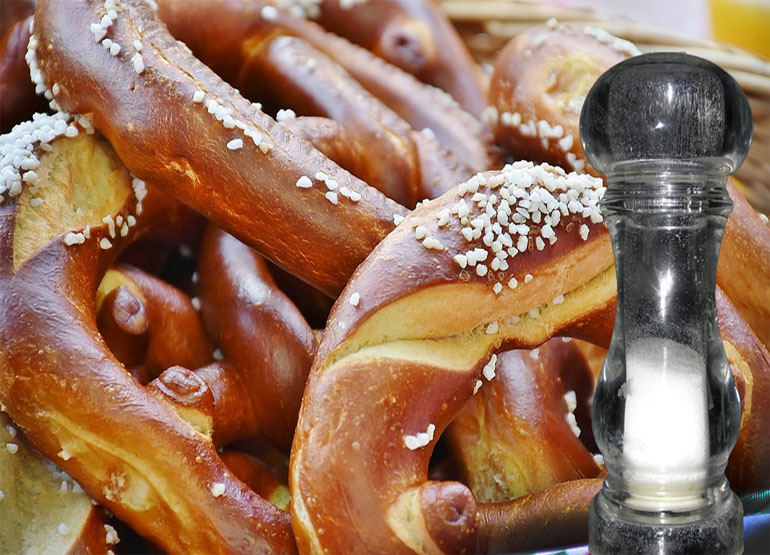Health Pages
Salt
Salt
INFO FOR PEOPLE WHO MUST WATCH THEIR SALT OR SODIUM INTAKE
Do you "taste before you shake" or do you automatically sprinkle salt on your food?
Dietitians are encouraging people to "shake the salt habit" and get to know the real taste of food. With herbs, spices, garlic, and onions, you can make your food spicy without salt and sodium. There’s no reason why eating less sodium should make your food any less delicious!
Excessive salt consumption has been linked to hypertension, or high blood pressure. Our average consumption of salt is 5-20 g per day. A prudent diet would limit salt intake to 5 grams daily.
Sodium is found naturally in many foods, but processed foods account for most of the salt and sodium that we consume. Pay close attention to food labels when you shop, read and compare food labels, and choose products that are low in salt and sodium.
Dietary Sources of Sodium
Table salt, whether added in cooking; at the table; or hidden in canned foods, processed foods, convenience foods and baked goods is the greatest source of dietary sodium. In general, fresh unprocessed fruits, vegetables and grains have an insignificant amount of sodium; unsalted meat has moderate sodium levels and cheese and butter are high in sodium content.
The following words on a food label mean that sodium is present:
- Monosodium glutamate (MSG) - used as seasoning in many processed food.
- Baking powder and baking soda (sodium bicarbonate).
- Brine (table salt and water) - used for preserving pickles, sauerkraut and flavour in corned beef, bacon, luncheon meats.
- Sodium nitrate - used as a preservative in bacon, ham, wieners and luncheon meats.
- Sodium benzoate - used as a preservative in soft drinks, relishes, sauces, salad dressings.
- Disodiumphosphate - stabilizing agent used in many processed cheeses.



